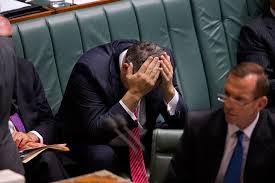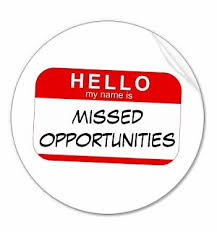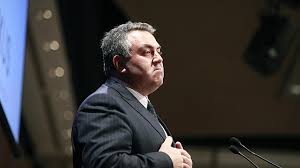Joe’s economic story just doesn’t add up
Voters aren’t buying Joe Hockey’s economic narrative. It could be because it just doesn’t stack up.
If you try following the logic of Treasurer Joe Hockey’s
economic arguments, you very quickly see why the government is failing
to get its key messages through and has spent much of the year in a mess
of its own creation.
The essence of the Hockey narrative for much of the year is
this: Labor left an appalling fiscal legacy, but the economy is too weak
for a stringent and dramatic return to surplus, so the budget was about
putting medium-term savings and structural reforms in place that would
begin the fiscal repair task, while infrastructure spending would
provide the immediate stimulus required to spur growth. But Labor,
vandals that they are, are both opposing those medium-term savings and,
as if their evil knows no bounds, trying to sabotage infrastructure
spending through their opposition to asset recycling, designed to get
the state governments spending. And Labor, so the narrative goes, even
dawdled on free trade agreements, which will deliver a big benefit to
the economy over the medium-term.
Hockey has remained wedded to this narrative even after
Wednesday’s terrible GDP number — indeed, for Hockey the evidence of
softness in the economy reinforces the need for Labor to support asset
recycling and encourage Premier Daniel Andrews to build the East West
Link (although Hockey has opened the door to other big projects Andrews
might want to bring forward, provided they can get started pronto).
Hockey, like Wayne Swan, says he won’t be “chasing down” falling revenue
in the forthcoming Mid-Year Economic and Fiscal Outlook.
But the Hockey narrative doesn’t stand up to the simplest
scrutiny. For starters, Hockey himself actually made the budget
situation significantly worse. Between the election and the end of 2013,
the government took decisions that worsened the deficit by more than
$20 billion over four years. It dumped the carbon price, a move which
the 2013-14 MYEFO
acknowledged would cost $6.3 billion in lost revenue. It dumped the
mining tax, which MYEFO acknowledged would cost $3.4 billion. And it
walked away from a series of tax and superannuation measures already
announced by Labor that cost $3.6 billion in lost revenue.
Each of those figures is just for forward estimates — they
were all ongoing measures. As revenue sources, they might go up or down,
but they were built into the budget — the carbon price might have
fallen in line with international trends, and the fall in iron ore and
coal prices would have reduced mining tax revenue this year, but the
removal of some superannuation tax concessions was designed to provide
long-term savings that would make a substantial difference a decade
hence.
Then there was the $8.8 billion handout to the Reserve Bank, a one-off that substantially worsened the 2013-14 deficit.
So when Hockey laments that Labor is blocking his
“medium-term” fiscal repair job, he hopes voters will ignore that he
made that job substantially harder himself, purely for political
reasons — especially the grossly irresponsible act of walking away from
measures like ending the Fringe Benefits Tax novated lease rort, and the
tax on superannuation incomes over $100,000, which his predecessors had
already announced and worn the political pain from. Hockey has not
merely wasted the Coalition’s political capital, he chucked away
measures Labor has burnt political capital on for the good of the
budget.
Then there’s what Hockey calls his plan to “significantly
increase infrastructure spending over the next few years” — the
equivalent of eight Snowy Mountains Schemes, he likes to boast. As a
number of commentators have pointed out, in fact the government is
simply spending on the projects it inherited from Labor, albeit with a
greater bias towards roads, which self-confessed Luddite Tony Abbott
seems to think is all that 21st century infrastructure involves. Given
infrastructure lead times, whatever stimulus is delivered to the economy
over the next 12 months will be entirely because of former
infrastructure minister Anthony Albanese and Labor, and not because of
Abbott, Hockey or Deputy Prime Minister Warren Truss.
And as we know from the Productivity Commission, free trade
agreements are good for diverting trade, but their actual economic
benefits are far harder to identify, if they ever materialise at all.
Don’t hold your breath waiting for a Chinese consumer-led recovery.
That leaves Hockey urging consumers to spend up big for
Christmas in order to give the economy a shot in the arm — while warning
of the terrible damage Labor is doing to the economy and the budget.
In opposition, Hockey long insisted the mere election of the
Coalition would provide a surge of business and consumer confidence
that would spark higher economic growth and get the animal spirits of
the economy stirring. If it ever did, Hockey killed all that off himself
with his budget communication strategy. Now he’s left with Plan B that
consists of wishing consumers a merry Christmas.
No wonder the dogs are barking about his job.
















